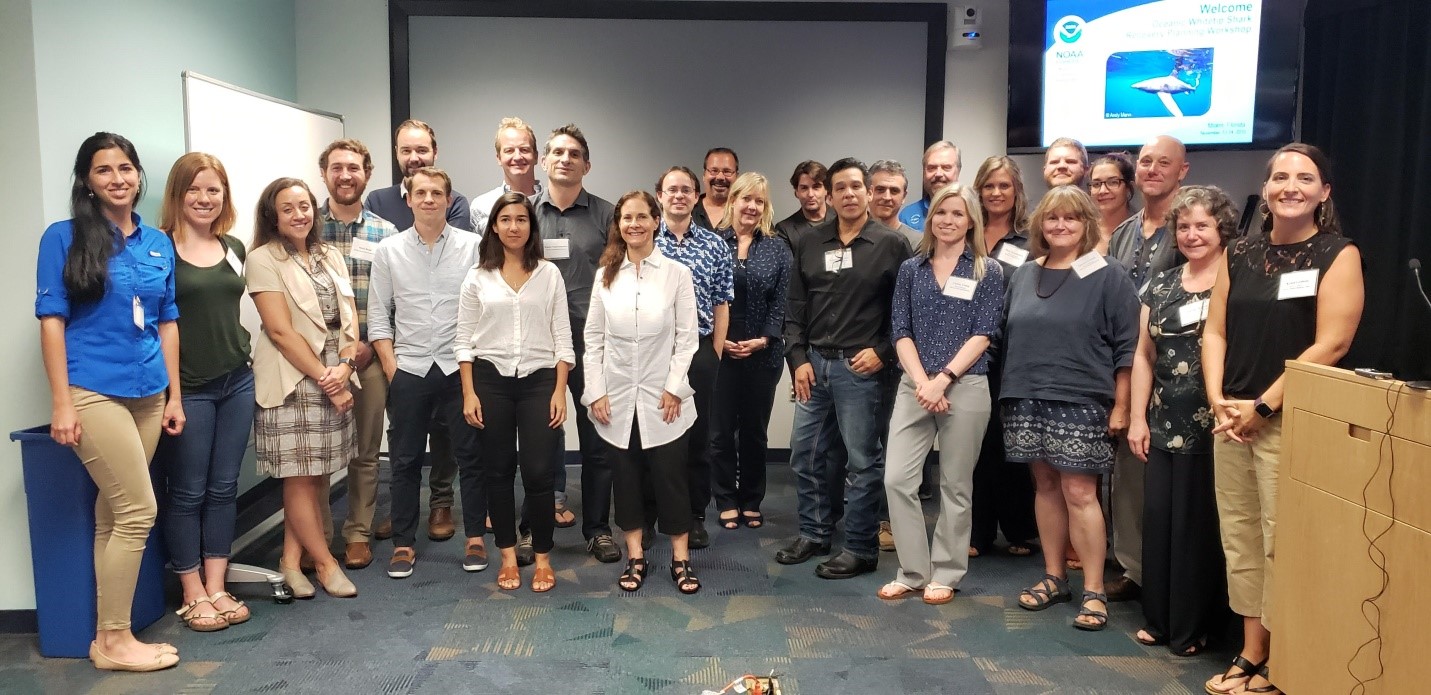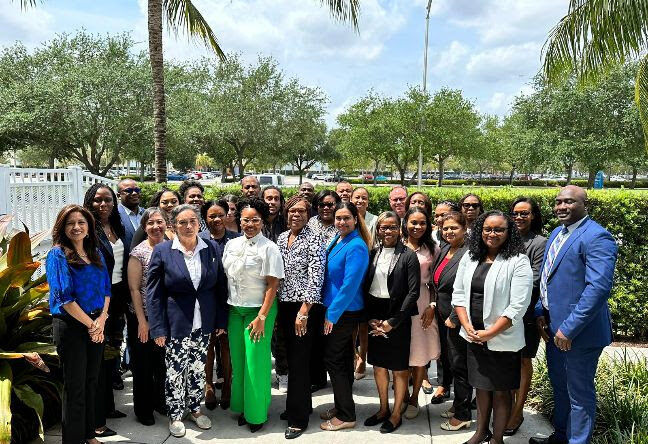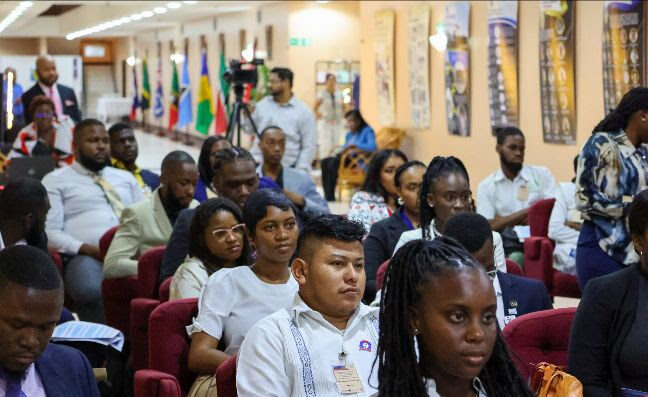By Nancy Roc
Although it was historically considered one of the most abundant shark species, research has suggested that the oceanic whitetip has suffered population declines of 70-80 per cent in most areas, mostly due to being caught as by catch in purse seine and long line fisheries as well as falling victim to the global shark fin trade.
On Jan. 30, 2018, the Trump administration announced the oceanic whitetip shark was to be listed as “threatened” under the Endangered Species Act, the first shark species to receive these protections in Atlantic continental U.S. waters.
Oceanic whitetip sharks became a focal point in the Caribbean a decade ago, when shark scientists placed satellite tags on nearly 100 sharks off the coast of CAT island in the Bahamas.
Most of these sharks were pregnant adult females, and their tracking data had them traveling throughout the Caribbean, in and around the Windward Passage between Cuba and Haiti, north of the Bahamas, west to the Cayman Islands, and farther south near Brazil. The question had remained where their breeding and nursery grounds were located, until one of the lead researchers, Dr. Mark Bond of Florida International University discovered that Haiti Ocean Project had found that answer in the Nippes region.
This discovery prompted an expedition in July 2018, onboard the M/V Alucia OceanX research vessel, which resulted in two oceanic whitetips being tagged, a juvenile and an adult female.

“These were the first sharks ever tagged in Haiti history and the first juvenile oceanic ever tagged in the world. In addition, there was also proof that juveniles also inhabited the waters off the north coast of Cuba and near southern Brazil”, says Jamie Aquino, President and Founder of Haiti Ocean Project.
The NOAA’s workshop brought together representatives working with research and conservation groups from the Bahamas, Haiti, Cuba, Brazil and the Cayman Islands – countries with known oceanic populations, both adult and juvenile – to coordinate a regional recovery plan.
Haiti Ocean Project received the biggest spotlight, not just for their confirmed juvenile oceanic population, but also for their established relationships with local fishermen and success in working to protect them.
Historically, this was an area where these young sharks were being caught and killed year-round by the fishermen, and now, through the efforts of Haiti Ocean Project, these sharks are being saved.
At the workshop, the shark conservation work being done in Haiti was applauded as a model for other countries in the Caribbean and South America, where these juveniles are also being killed.
“After more than a decade of assessing and identifying the problems facing Haiti’s marine life, it became clear that the biggest threat to our juvenile oceanic whitetip shark population was the local, artisanal fishermen, who were catching and killing them at alarming rates,’’ reveals Jamie Aquino.
“It was even more evident that these fishermen could easily become the solution for how to save them. Our action’s became building strong relationships and partnerships with those same fishermen, which we did, and they have become our allies in our fight to protect these young sharks.”

However, giving Haitian fishermen a sense of pride and satisfaction that they are saving an endangered species, is not enough to help them in the long term. “We need to be able to establish a training program, for these fishermen to learn other skills and vocations, which can create alternative income opportunities not directly connected to fishing’’, adds Jamie Aquino.
But in a country in crisis, these training programs require funding which are almost impossible to find. Haiti’s Ministry of Environment doesn’t seem to understand the importance to have a potential shark sanctuary which could change the image of the poorest country in the Western Hemisphere.
It has not event provided Haiti Ocean Project with a letter allowing the sharks’ DNA samples to be sent to the United States for research, In a country where the environment’s vulnerability is disastrous, the Minister of Environment cumulates two mandates and is also the Ministry of Finance, prioritizing the latter and neglecting all environmental issues.
Haiti Ocean Project (HOP) is a non-profit organization created in Haiti in 2007. The primary mission of Haiti Ocean Project is the conservation and protection of high-profile marine life such as marine mammals, sea turtles, sharks and stingrays through education of youth, research and data collection, community awareness, public policy and ecotourism.
HOP is also a leading actor in advocacy between Haiti and the world, to influence communities, fishermen, youth, policies, structures and systems in order to bring about change in the way marine species are viewed in Haiti and persuading all stakeholders to act in more just and equitable ways toward them.
At the core, it is about building relationships. It is about tackling the root causes of poverty which endangers the marine species and promoting their protection in Haiti.




